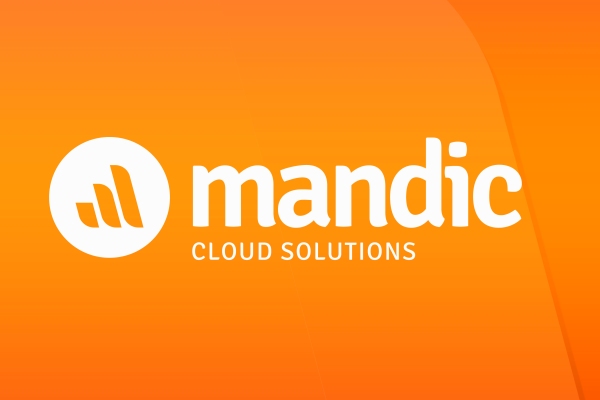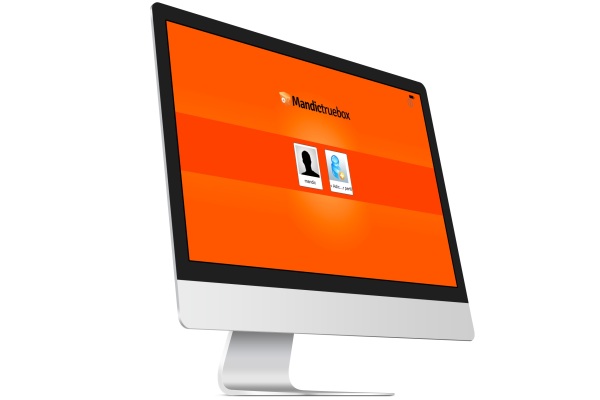Mandic: Leading Cloud Computing Solutions Provider in Brazil
Maurício Cascão, CEO of Mandic
Maurício Cascão gives an overview of the cloud computing sector in Brazil and presents Mandic, an IT service company with more than 20 years of experience in the market. Mandic offers IT solutions designed exclusively for corporate users.
Interview with Maurício Cascão, CEO of Mandic

Could you please start the interview by telling us about the cloud computing sector in Brazil now?
The company had to be very positive and very good. We started the investment in 2012. In 2011 we already had the vision that cloud computing was something that had to happen in Brazil and worldwide. Brazil is the market to be and there is no such company positioned as well as the Brazilian cloud computing company Mandic.
Other companies within our sector do cloud computing as well – they do it “as well”, meaning they do other things within the IT area. Our company only works with cloud computing, nothing else. If you are a company looking for a cloud computing solution, we are the best solution on the market.
We set out to invest. Riverwood Capital invested BRL 100MM in Mandic, and when I say “it has got to happen” it’s because we are playing heavy on this. We got corporate investors, individual investors (I am one of the individual investors and have become Mandic’s CEO), so every month has to be a good one – we have to sell more in the following month than we did in the previous one.
Could you tell us a little bit about the company’s history?
If we think about Mandic as a company that started out in the mid 90’s by the hand of its founder, Mr. Aleksandar Mandic, it has been a long road. Its story has changed completely in 2012 when we came in as corporate and individual investors with all the funds backing up the business. We started changing it for it to become THE cloud computing company in the country.
We are an IT service company which deals exclusively with corporate users. If we think in terms of the size of the company, we are a 200 people company, we are based in Sao Paulo (corporate office), and we have commercial offices in Rio de Janeiro, Paraná and Rio Grande do Sul. We are covering 63-64% of the GDP. In terms of revenue, we are in the range of BRL 50MM.
How would you define the company’s philosophy and what are your competitive advantages?

We compete with domestic players and multinationals. When you compare our company with the domestic players, the big difference would be specialization. Other companies within our sector do cloud computing as well – they do it “as well”, meaning they do other things within the IT area. Our company only works with cloud computing, nothing else. If you are a company looking for a cloud computing solution, we are the best solution on the market.
This specialization also translate into a differentiated customer support. This is a matter of understanding what the culture of the country is: this is not an Anglo-Saxon culture, so people are not accustomed to reading manuals and getting things done by themselves. They like to get support, to interact with people, to have face-to-face conversations. That is perhaps what differentiates us from the international players, because you can have a competitive solution with a differentiated customer support with interaction, face-to-face conversations and outsourcing (cloud computing is an outsourcing business). What we build in this company is trust with other companies.
Could you also refer to some of your main clients?
I can tell you about segments. More than talking specifically about customers, I can tell you that today we have 9,000 clients. One other thing about the portfolio of services that we have is that we do not have niche products. We have essentially basic solutions that every company needs. We host emails, we host email marketing, we commercialize Microsoft products and we provide a lot of infrastructure within the cloud: service, backup, archiving, recovery. If you think about the portfolio of clients that we have, every one of our customers could be potentially a customer of all the products we have. Every company needs an email solution, needs to buy a product from Microsoft, has got to use a server, has got to have backup, is going to archive data, is going to use some kind of corporate box. Everything we provide is a foundation of all a company needs. That translates into our presence in all the verticals: real estate, industry, retail, etc. Historically we are more present in some verticals: retail is very strong for us, the health segment is also becoming very strong, education is also becoming very strong. We are present in companies that are open minded in terms of how to adopt technology, because when you talk about cloud computing that means that you are going to be outsourcing and that you are going to have infrastructure off-premises. From a company perspective, that requires a change in culture.

How would you define the growth strategy of the company?
2014 is going to be a year in which we are going to look like a BRL 50MM company. The idea is that by the end of 2015 we have to double. Our strategy to double is a very aggressive organic growth (30-35% year-on-year), and there is also a inorganic component, which is the acquisition of other companies.
We were recently capitalized by Intel Capital (they have inserted a larger amount of money in the company). This money with the money of the previous investors is being used today, among other things, to make new acquisitions.
Are partnerships interesting for you?
Most of our sales come from consultative sales (face-to-face), but we also have online sales, telesales, video sales, and we have put together a partner program. We sell to partners and the partners enrich the product with their own solution for their customers.
We look for partners that have a software as a service solution that can be combined with the infrastructure that we bring in. We look for partners that are IT integrators (they have a small amount of customers, but they do everything for them). To a certain extent, we also have some resellers. When you talk about partnership with us, we mean that kind of commercial relation where we bring in our product, they bring in their product and we combine the two things to get something more performer.
What challenges do you face on a daily basis?
There are different dimensions to that aspect. I am going to start with human capital – that is a challenge in the country (Brazil). When we post an offer, for example, we do get a lot of people interested in working for us (the market starts to realize that we are coming in and doing something different), but when we open those resumes and start looking at the experience that people have, both in terms of selling cloud computing solutions and developing could computing solutions, the experience is weak. That is a challenge that we have faced since the beginning. After two years, what we have put together is what we call a Mandic University (we do generate a lot of content inside), so we are in the right conditions to bring in junior people and start training them in-house. The challenge is to get people with the necessary knowledge, and the way to cope with that is to bring in people with high potential and invest in them.

The other challenge is economic. This year seems a little fuzzy, 2 or 3 years ago the market was looking much more aggressive. In terms of annual growth, this year is not as “sexy”. We work in a sector that is a service sector and the service sector is very aggressive, and we are definitely bringing something new into the market. It would be better if the market was growing more.
The third challenging thing is the acquisition of other companies. Wanting to grow very fast makes it a challenge for us. You have to be sure you have the right people, the right processes, and that you have people that you can scale. The size of the company is medium, but we intend to be 3 times bigger, and you have to have people with elasticity, you have to have executive people that are able to evolve at the company’s rhythm.
Do you see a big change in the sector in the upcoming years?
In 3 to 4 years cloud computing is going to be very well established in terms of technology. There is a huge work to be done, and that is evangelizing the market, explaining what cloud computing is, how it can be used. With cloud computing you do not have to have access to the technology (you do not need to put it in-house), you do not have to rent the technology from others, you can just go to the processing power. You will have access to technology as a service – this is the next wave.
In 3, 4 or 5 years more companies will be adopting this, and the one that is going to be very well known is Big Data, which is going to make our life easier.
You told us that until the end of 2015 you want the company to double. In a longer term, where would you like to see the company?
Companies have stages. The first stage for us is to become a company with 3-figure revenues (BRL 100-150MM). Once we hit that, and we are able to do that and we get there in a good shape, we would like to hit the billion Reals barrier: but the billion starts with half a billion and it has to be one step at a time.
What would be your message to a foreign investor that might read this interview?
In this country and culture, it is very difficult for a foreign company to start something here from zero. I think it is almost mandatory to do either an acquisition or a joint venture. If it is an investor looking to invest for growth, it has to be done through a partnership. Riverwood Capital did not start from zero. It started through an acquisition.
It is not very easy to get access to human capital and, if you start from zero, you will have to hire people. You cannot bring everyone from abroad, because there is the Latin and Brazilian cultural aspect that is very peculiar. Depending on which way you are going, you either have to choose a partnership or an acquisition.
Do you have something else to add? Maybe a final comment?
We have been in the country and we know the culture, we cover 64% of the GDP of the country, we are present in Sao Paulo and Rio de Janeiro with people that understand the market. Any company coming down here wanting to do business can look at us as partners.
We have 9,000 customers, and it’s part of our company’s culture to build partnerships for the products that we have. We are very open to hold discussions with different companies. That is the better way to do business: through a local and established partner (like us, for example).
FAIR USE POLICY
This material (including media content) may not be published, broadcasted, rewritten, or redistributed. However, linking directly to the page (including the source, i.e. Marcopolis.net) is permitted and encouraged.